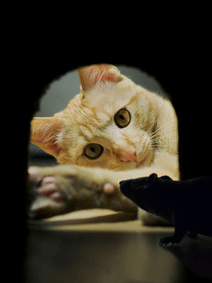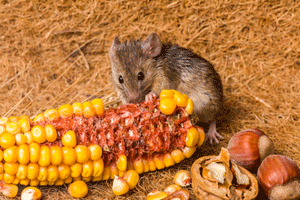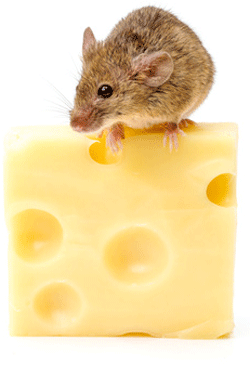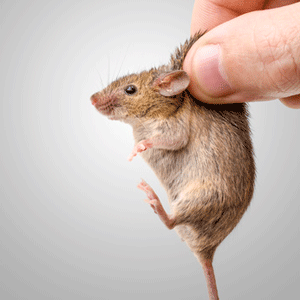Mice Control
The Problem

- Damage: Mice are capable of causing significant damage, particularly around electrical wiring, cabling and computer installations. This often results in expensive repairs; loss of business and in exceptional circumstances may result in electrical fires.
- Viruses: Mice are carriers of a number of viruses and pathogens including Salmonella, Listeria and Hantaviruses. As such they present a significant health risk, especially around food preparation areas, food storage facilities and commercial kitchens.
Survey
Should you encounter mice inside premises, we will always undertake a detailed survey to establish the extent of the population, methods of entry, possible food sources and the best method of control. We always explain the results of our findings prior to commencing any treatment.
Control and Eradication

Prevention is always better than cure.
The most effective method for the long term control of mice, as with many other pests, is exclusion.
Where possible we aim to locate all potential entry points during the initial survey. We are then happy to advise upon the best methods of securing these, undertake this work on behalf of customers or recommend a number of trusted trade’s people to undertake the works as required.
The eradication of any existing population should always be undertaken through the targeted use of rodenticides, traps or a combination of both prior to exclusion work being undertaken.

Although some people appear to be more tolerant of mice in premises than rats, their importance as a public health pest should never be underestimated.
Once a population becomes established inside premises they are, if anything more of a problem than rats. They are certainly more difficult to control for a variety of reasons.
There are two types of mice that we encounter on a regular basis, these being the House Mouse and the Field Mouse.
The field mouse, as the name suggests spends most of its time outside and whilst it will often set up home in garden sheds, outbuildings and garages it does not tend to venture into houses other than during the colder winter months.

House mice are however, more than happy to share our homes all year round and in the correct conditions will breed at a significant rate. The size of the population is controlled only by the amount of food which they can access.
They are capable of spreading many of the same viruses and pathogens as rats, can enter through much smaller gaps and are more agile. They are certainly more adept at gaining access to food preparation surfaces.
Scientific studies have also revealed that many populations of house mice have become resistant to a number of the more readily available rodenticides.

Other factors which make control of house mice in particular more difficult than rats is their ability to survive on very small amounts of food coupled with their feeding habits which are very different from rats.
The fact that they are often able to obtain sufficient moisture from their food also means that they may not require a separate source of water.
Their tendency to store food, and their sporadic feeding habits can also prolong effective treatments or result in the complete failure of treatments.
Successfully excluding house mice from an individual flat within a block or an individual house within a terrace is sometimes possible, although not always practicable. Dependent upon the method of construction of the premises we would often recommend that, whenever possible, block treatments are undertaken by the management company.




